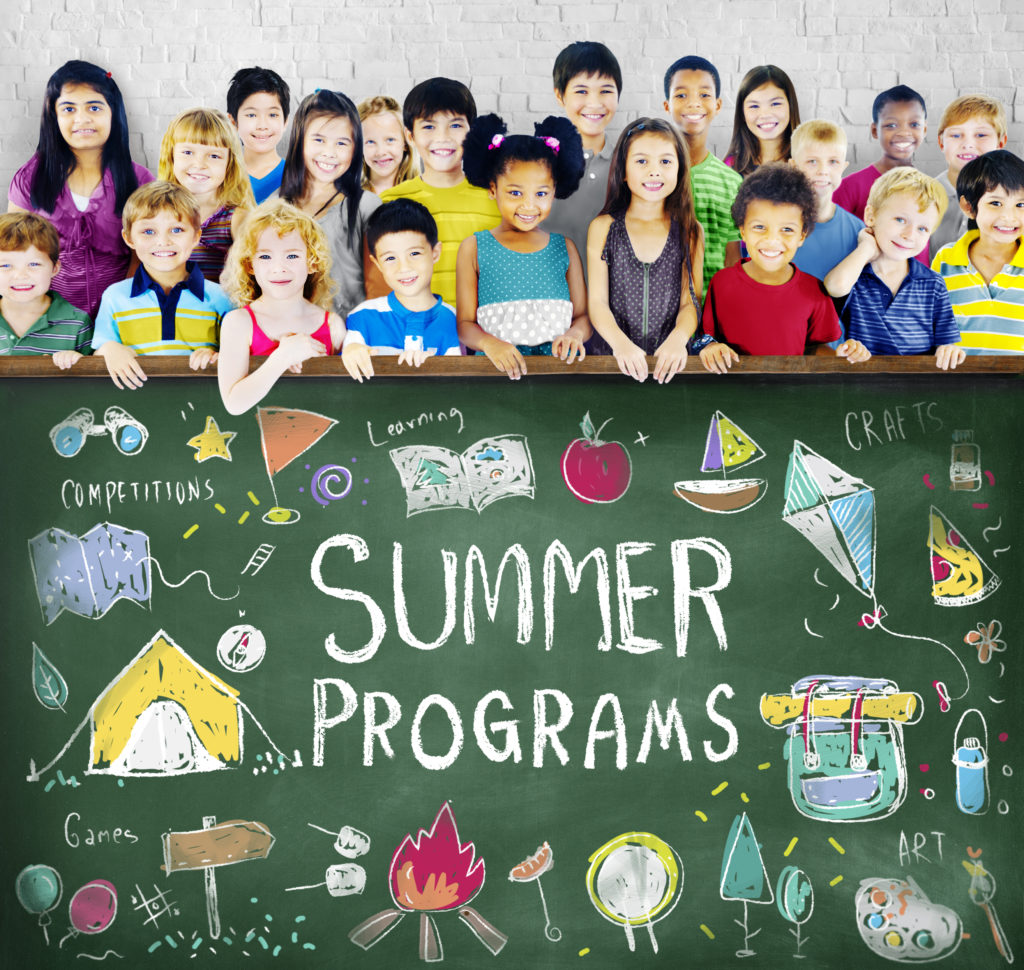Summer camps are more than just summer playgrounds; they’re transformative experiences that shape a child’s growth and independence while building cherished memories. For each age group and stage of development, kids’ experiences at summer have different things to consider.
While there are a variety of camp options, there are different goals for each age and different things parents should consider. A 6-year-old’s camp experience should look very different from that of a 16-year-old. As you think about your child, think about their unique needs and goals for camp. Look for these key considerations for each age group:
Early Childhood (Ages 4-6)
At this age, summer camps focus on nurturing curiosity and fostering social skills through playful activities. Camps often offer themed weeks – ranging from nature exploration to arts and crafts – where little ones engage in finger painting, outdoor adventures and storytelling sessions.
These camps prioritize a nurturing environment that introduces teamwork, sharing and cooperation through fun-filled games and activities. Often these are day camps, but overnight camps are available as well.
Important considerations:
- Comfort and Familiarity: Ensure the camp environment is nurturing and familiar, allowing for a smooth transition. Familiar faces or activities can ease separation anxiety.
- Safety Measures: Verify the camp’s safety protocols, especially regarding supervision, food allergies and basic medical needs.
- Communication: Choose camps that prioritize clear communication with parents, providing updates on daily activities and your child’s progress.
- Play-Based Learning: Look for camps emphasizing play-based learning to nurture curiosity and social skills in a fun and engaging manner.
Middle Childhood (Ages 7-10)
As children step into the elementary years, summer camps offer a broader spectrum of activities. Sports camps are popular, providing fundamental skills training in activities like soccer, basketball or swimming. Adventure camps introduce thrilling experiences that include rock climbing, zip lining and camping, instilling a sense of courage and resilience.
Specialized camps also emerge at this age, catering to specific interests such as coding, robotics or theater. This is a great way to nurture budding passions and talents. Team-building activities and structured games further develop social skills and cooperation among peers as developing relationships becomes more important with age.
Important Considerations:
- Interest Alignment: Consider your child’s interests when selecting camps. At this age, children often enjoy exploring hobbies or sports they’re passionate about.
- Balanced Activities: Ensure a balance between structured activities and free time for social interaction and personal exploration.
- Friendship Opportunities: Check whether the camp facilitates teamwork and bonding among campers through group activities and team sports.
- Independence Development: Encourage camps that foster independence through small responsibilities and decision-making opportunities.
Preteens (Ages 11-13)
Entering the preteen phase, camps focus on honing skills and providing opportunities for personal growth. Leadership camps empower adolescents through workshops, discussions and challenges that cultivate self-confidence and decision-making abilities. Wilderness camps push boundaries with more extensive outdoor excursions, fostering independence and resilience through survival skills and exploration.
Additionally, creative arts camps delve deeper into various art forms, encouraging self-expression and creativity. These camps often offer more specialized instruction and advanced techniques to further develop talents. Individual growth as well as developing strong relationships is essential at this age.
Important Considerations:
- Challenges and Growth: Look for camps offering appropriate challenges that encourage personal growth and self-confidence, such as leadership or adventure camps.
- Specialized Interests: Consider specialized camps that cater to your child’s emerging interests and talents, providing opportunities for skill development.
- Communication and Support: Ensure the camp has mechanisms for supporting preteens navigating social dynamics and offers avenues for open communication with counselors.
- Balance and Rest: Acknowledge the importance of downtime and adequate rest amid more intensive activities to prevent burnout.
Teenagers (Ages 14-17)
The teen years mark a shift towards more immersive and specialized experiences. High schoolers can opt for camps tailored to their career interests, such as STEM camps, journalism workshops or entrepreneurship programs, providing hands-on experiences and mentorship.
Adventure camps for teens become more intense, offering wilderness expeditions, whitewater rafting or international travel programs. These experiences challenge teens physically and mentally, fostering resilience, adaptability and a global perspective. Community service camps allow teens to contribute meaningfully through volunteer work, promoting empathy and social responsibility.
The social component is essential for teens, but it can take on different forms. While some kids enjoy a team-building extroverted camp experience, others prefer something that focuses on independent growth or learning a new skill. Make sure your teen is comfortable with the level of social interaction offered.
Important considerations:
- Goal Alignment: Select camps aligning with your teen’s future goals or career interests for a more focused and beneficial experience.
- Independence and Responsibility: Encourage camps that promote independence and responsibility, allowing teens to make decisions and navigate challenges.
- Mentorship and Guidance: Look for programs with experienced mentors or instructors who can provide guidance and support to teens exploring their passions.
- Community and Impact: Consider camps that involve community service or global initiatives to instill a sense of social responsibility and global awareness.
The Best Camp Experience
Regardless of age, summer camps serve as transformative spaces where children and teenagers develop essential life skills, forge lasting friendships and create cherished memories. As you choose camp experiences at each age, consider your child’s evolving needs to offer the best camp experience.



